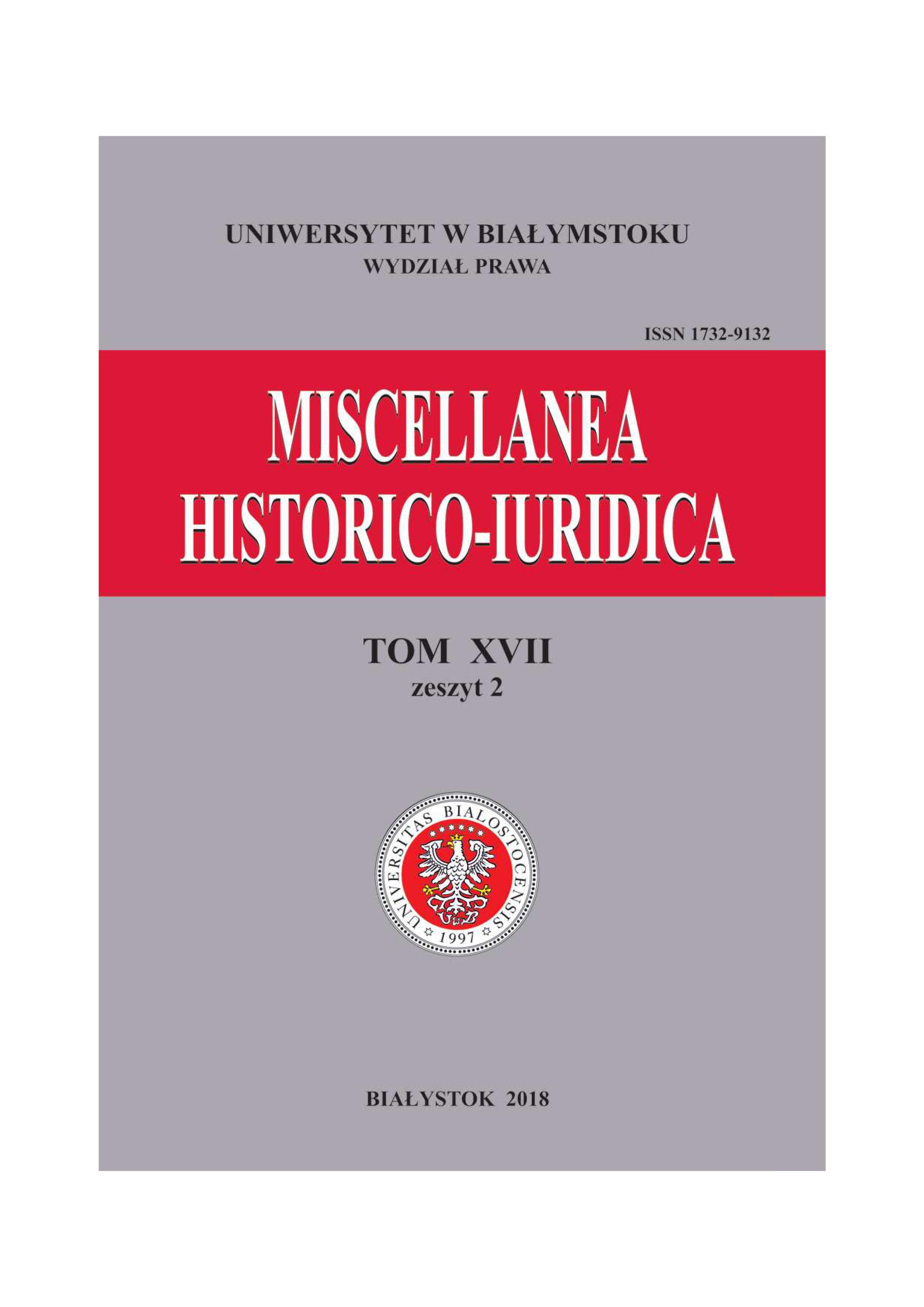Gaius’ Concept of The Law of Nations (Ius Gentium) and Natural Law (Ius Naturale)
Gaius’ Concept of The Law of Nations (Ius Gentium) and Natural Law (Ius Naturale)
Author(s): Róbert BrtkoSubject(s): Law, Constitution, Jurisprudence, History of Law
Published by: Wydawnictwo Uniwersytetu w Białymstoku
Keywords: classical Roman law; ius gentium; ius naturale; ius civile; Roman jurist Gaius; Institutes of Gaius; Roman jurisprudence
Summary/Abstract: The paper, after a brief presentation of the classical Roman jurist Gaius and his most important and best known work, Gai Institutionum commentarii quattuor, presents and analyzes his legal texts concerning mainly ius gentium and its relationship to ius naturale. At the beginning of his textbook, this Roman jurist distinguishes only two types of law: civil law – ius civile and the law of nations – ius gentium (Gai Inst. 1, 1). Gaius mentions the law of nations (ius gentium) explicitly in the above mentioned fragment in a way that he relates it to “natural ratio” – natural order or natural reason. Gaius defined the concept of ius gentium two centuries after Cicero. Unlike Cicero who was more a philosopher than a lawyer and perceived “ius gentium” mainly in an abstract sense, Gaius came up with the concrete concept of ius gentium, which was clearly separated from the concept of ius civile. Ius gentium is the law which is common for all nations. On the other hand ius civile is the law which concerns only Roman citizens. Ius gentium is the law which obliges both Romans and foreigners, because its basis is “naturalis ratio”. In addition, Gaius, in characterizing ius gentium, gives attention to two elements: a) any standards apply to all nations; b) or standards come out of natural reason (naturalis ratio). Gaius in this way presented two perspectives on one and the same ius gentium which are intrinsically and therefore necessarily linked. The first point of view is concrete and the second one is abstract. In other words Gaius presented some legal institutions which belong to the area of ius gentium from the concrete point of view, the other ones from the abstract point of view, which is based on the so-called “naturalis ratio”. As far as the category of ius naturale is concerned, Gaius, in terms of content, identified it with ius gentium. So ius gentium differs from ius naturale only on the basis of a point of view, which individual standards or legal institutions are expressed through. If legal standards are expressed from the concrete point of view (i.e. in standards there is an explicit mention that they apply to all nations), then they can be included in the category of ius gentium. If they are formulated from the abstract point of view (i.e. in standards there is a mention of their origin from “naturalis ratio”), they can be included in the category of natural law.
Journal: Miscellanea Historico-Iuridica
- Issue Year: 17/2018
- Issue No: 2
- Page Range: 39-53
- Page Count: 15
- Language: English

